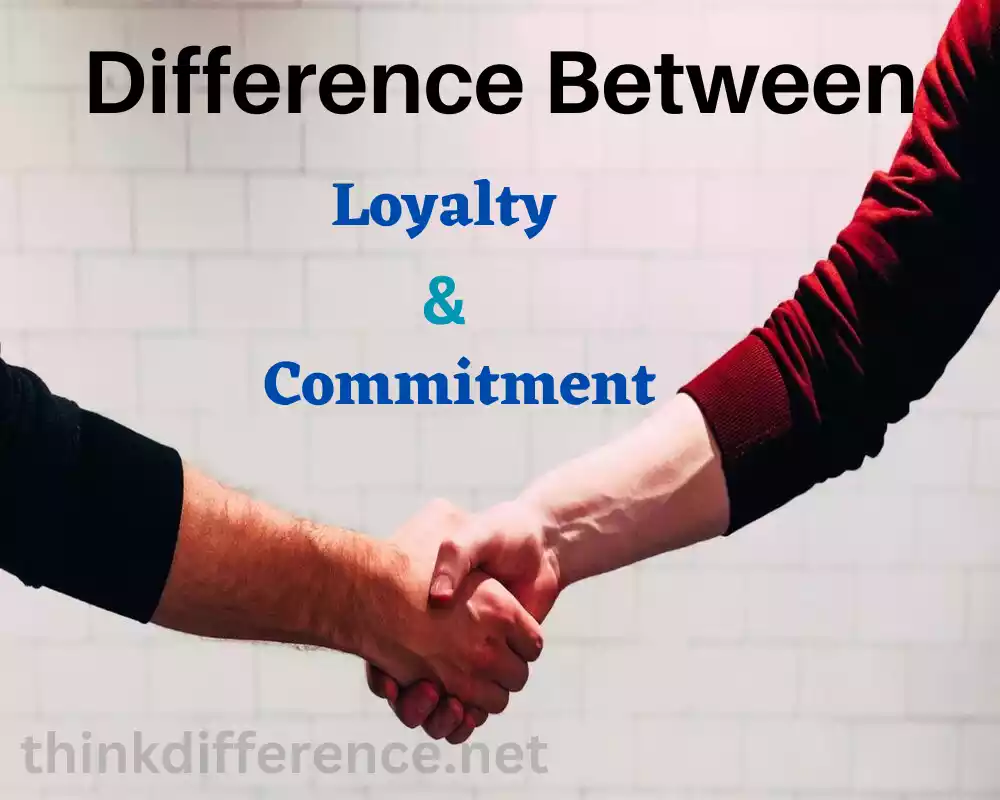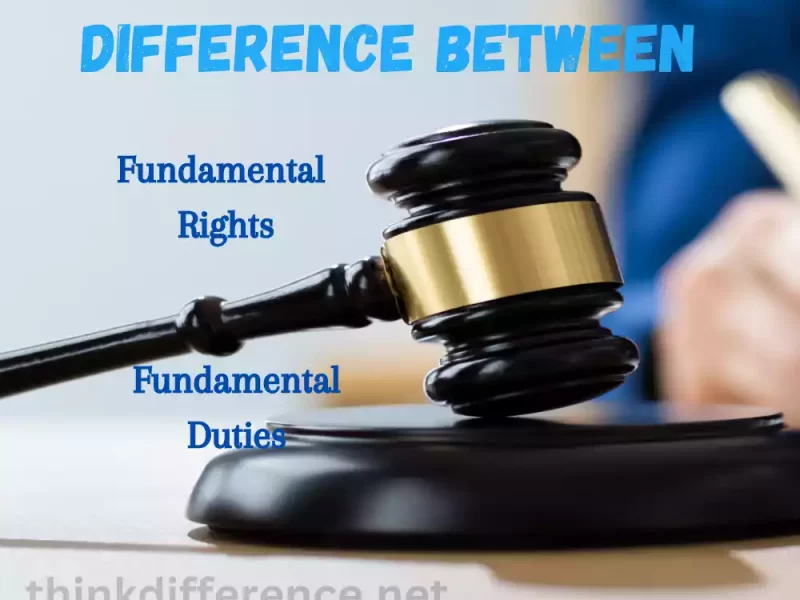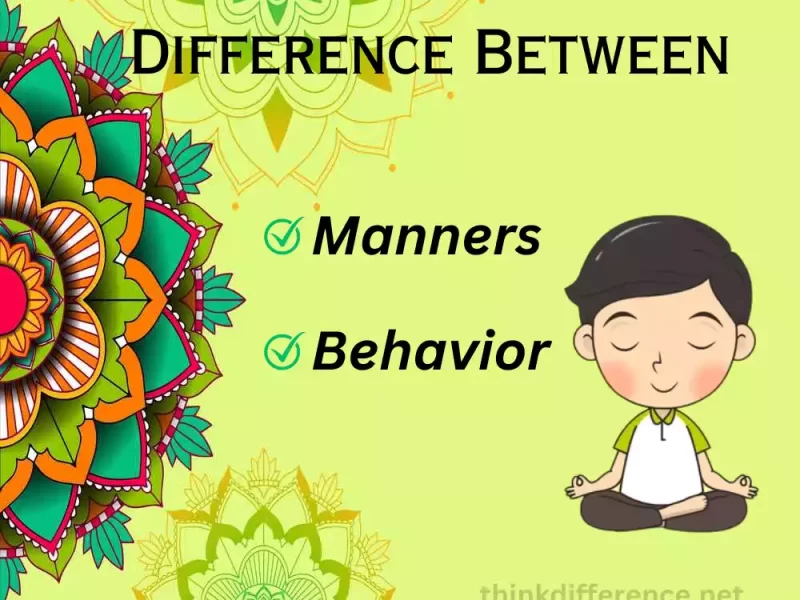Loyalty and Commitment form the cornerstone of strong and enduring bonds. Whether in personal or professional settings, these qualities contribute to trust, reliability, and mutual growth. This article explores the significance of loyalty and commitment, strategies for cultivating them, and the challenges involved. Understanding and cultivating these characteristics can assist individuals and organizations in forging long-lasting relationships based on shared goals, trust and support.
Definition of Loyalty and Commitment
Loyalty:
Loyalty can be defined as an intense sense of dedication to another group. It involves a deep emotional attachment and a willingness to support, stand by, and defend the object of loyalty, even in challenging or difficult circumstances. Loyalty often implies a sense of trust, reliability, and consistency in maintaining a relationship or connection.
It can manifest through consistent actions, unwavering support, and a genuine sense of dedication. Loyalty stems from feelings, emotions and personal connections – it plays an essential role in building and maintaining personal and professional relationships alike.
Commitment:
Commitment refers to your full dedication toward fulfilling obligations, responsibilities and goals that require dedication of time, energy and resources for their fulfillment. Commitment involves dedicating oneself despite potential setbacks or obstacles as you see these projects through until completion. It often requires prioritizing and making sacrifices to honor the commitments made.
Commitment is driven by a sense of purpose, values, and long-term orientation, aiming for sustained progress and achievement. Unlike loyalty, commitment is more rational and deliberate, relying on conscious decision-making rather than solely on emotional attachment. Commitment can be applied to personal goals, relationships, careers, and larger causes or ideals.
The Importance of Loyalty and Commitment
Loyalty and commitment are crucial parts of everyday life, here are several reasons why they matter:
- Building Strong Relationships and Trust: Loyalty, commitment and respect form the cornerstones of every healthy relationship. Be they familial or romantic in nature. Loyalty fosters dependability while commitment creates emotional security between two individuals who commit their time, loyalty and energy towards one another – essential components for long-lasting friendships or romantic partnerships alike. Trust is therefore paramount.
- Enhancing Teamwork: Loyalty and commitment in professional settings are crucial to cultivating an enjoyable working environment and encouraging effective teamwork. Team members who demonstrate loyalty towards the goals and roles of the team increase productivity, collaboration and synergy. Loyalties create camaraderie between colleagues.
- Establishing Brand Reputation & Customer Loyalty: Customer loyalty can be invaluable to a business. In order to develop it successfully, business must consistently deliver top-quality services or products while meeting customers’ needs in every aspect. Loyal customers not only return, but can act as brand advocates spreading positive word of mouth about them as repeat clients or spreading good will about you to potential new ones.
- Achieving Personal and Professional Goals: Committing to both personal and professional goals is integral for growth. Commitment helps individuals overcome challenges to their objectives while remaining focused on them, keeping discipline high, prioritizing tasks appropriately and making sacrifices needed in order to attain desired results.
- Engagement With Social Issues and Activism are Essential: Commitment and activism are central elements to driving positive changes within society, such as justice, equality or environmental sustainability. People dedicated to these causes devote both their time and energy towards seeing meaningful transformations occur. Dedication may inspire others, lead to collective actions taken on an issue at hand and have lasting impacts upon society as a whole.
- Establishing Organizational Stability and Success: Loyalty and commitment of employees is vital to organizational success and stability. Loyal employees tend to stay longer at their company and are happier in their jobs, while engaged ones contribute innovative ideas and productivity – not to mention invest more fully into its goals.
Loyalty and commitment are central components to successful relationships, career advancement, and social advancement. Through them, trust can be built, strong connections made, achievements pursued with more gusto, overall wellbeing improved as well as team performance enhanced and organizational effectiveness achieved.
What is Loyalty?
Loyalty can be defined as an intense sense of devotion to someone or some group, marked by strong feelings of devotion, allegiance and attachment. It involves a deep emotional attachment and a willingness to support, stand by, and defend the object of loyalty, even in challenging or difficult circumstances.

Loyalty is often built on a foundation of trust, reliability, and consistency in maintaining a relationship or connection. It goes beyond mere obligation or duty and stems from genuine care, respect, and commitment. Loyalty can manifest through consistent actions, unwavering support, and a genuine sense of dedication.
In personal relationships, loyalty is crucial for fostering trust, emotional intimacy, and a sense of security. It involves being there for someone during both joyful and challenging times, showing loyalty through honesty, support, and dependability.
In the business context, loyalty is highly valued. Brand loyalty, for example, refers to the repeated purchase or preference for a particular brand due to a customer’s positive experiences, trust in the brand’s quality, or emotional connection with its values and identity. Loyalty programs and customer retention efforts are often implemented to cultivate and reward loyal customers.
In the workplace, loyalty can be seen through employee loyalty. When employees feel loyal to their organization, they are more likely to exhibit higher job satisfaction, engage in discretionary effort, and contribute to the company’s success. Loyalty from employees can foster a positive work culture, build cohesive teams, and enhance overall productivity.
It’s important to note that blind loyalty, without critical evaluation or ethical considerations, can have negative consequences. It is essential to balance loyalty with personal values, ethics, and the need for independent thinking.
Loyalty is fundamental for developing and nurturing meaningful relationships, building trust between people, fostering emotional connections and providing continuity and support.
What is Commitment?
Commitment refers to your firm commitment toward fulfilling obligations, responsibilities and/or goals that have been set. Committing means making an intentional choice to dedicate your time, energy and resources in pursuit of one course of action or another.
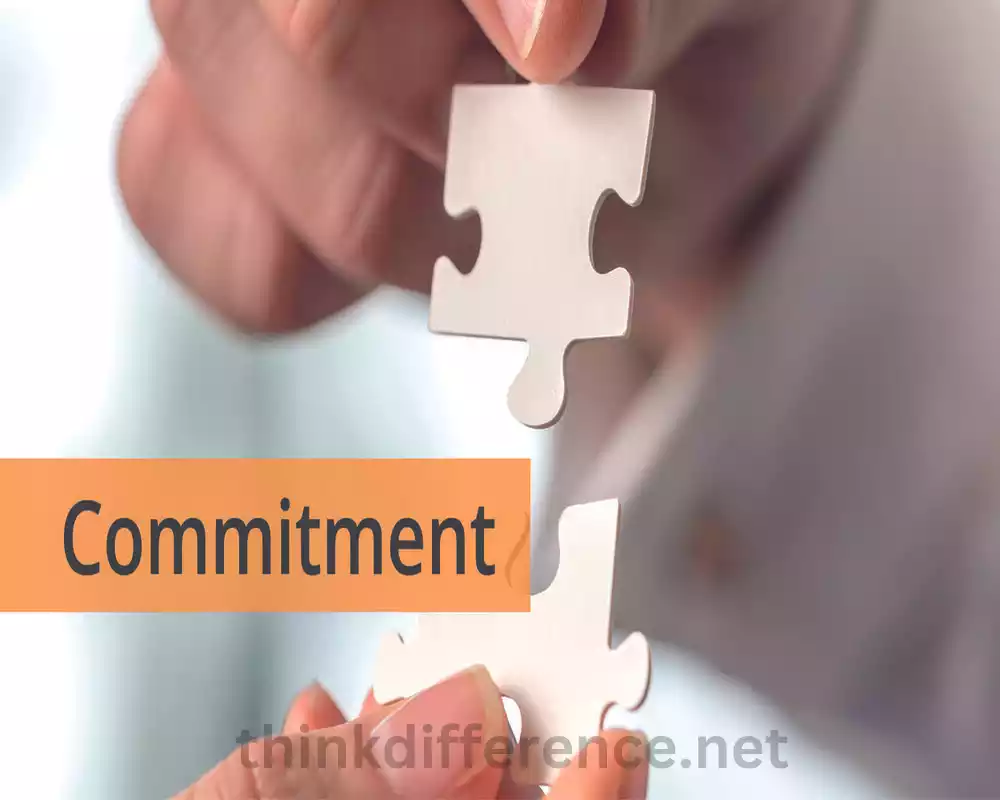
Commitment goes beyond initial enthusiasm or motivation and encompasses a steadfast determination to see tasks through to completion, even in the face of challenges or setbacks. It requires a sense of perseverance, resilience, and accountability.
In personal contexts, commitment often relates to setting and pursuing individual goals. Whether it’s personal growth, education, health and fitness, or relationships, commitment involves making a firm decision and taking consistent action towards achieving desired outcomes. It requires prioritizing and making sacrifices to honor the commitments made, even when obstacles arise.
In professional settings, commitment is crucial for career success. It involves being dedicated to one’s job responsibilities, striving for excellence, and continuously developing skills and expertise. Committed professionals exhibit a strong work ethic, take ownership of their work, and demonstrate reliability and consistency.
Commitment can extend beyond individual goals and aspirations to encompass broader causes and ideals. People committed to social causes or activism are dedicated to advocating for change and making a positive impact on society. These leaders dedicate time, resources, and energy to meeting long-term objectives and making tangible strides forward.
Commitment can be motivated by values, sense of purpose and long term goals. It requires aligning actions with personal or organizational values and making choices that support the fulfillment of commitments over the long run. Commitment helps individuals stay focused, overcome challenges, and maintain motivation and momentum towards achieving desired outcomes.
Commitment is integral for personal and professional success as well as making an impactful contribution to society. It involves making deliberate choices, staying dedicated to goals and responsibilities, and persevering through challenges. Commitment provides a framework for accountability, progress, and fulfillment in various aspects of life.
Comparison table of Loyalty and Commitment
Here’s a comparison table highlighting the key differences between loyalty and commitment:
| Aspect | Loyalty | Commitment |
|---|---|---|
| Definition | A sense of faithfulness, devotion, and allegiance towards a person, group, or cause. | A state of being dedicated, devoted, and fully engaged in fulfilling obligations, responsibilities, or goals. |
| Focus | Emotional and relational aspect of the connection. | Behavioral and action-oriented aspect. |
| Scope | Can be broad and encompass multiple areas of life. | Often associated with specific goals, tasks, or professional contexts. |
| Decision-Making | Based on emotions, personal connections, and trust. | Rational and deliberate decision to fulfill responsibilities and honor obligations. |
| Flexibility | Subjective and can be influenced by changing circumstances. | Implies consistency and perseverance even in the face of challenges or changing situations. |
| Timeframe | Enduring and long-lasting. | Varies depending on the specific goal or task. |
| Key Elements | Attachment, trust, and allegiance. | Dedication, perseverance, and accountability. |
Cultivating Loyalty and Commitment in Personal Relationships
Cultivating loyalty and commitment in personal relationships is essential for building strong, lasting connections.
Here are some strategies that can help foster loyalty and commitment:
- Communication and Understanding: Open and honest communication is key to understanding each other’s needs, expectations, and concerns. Actively listen to your partner, family member, or friend and show empathy and understanding. This helps create a supportive and trusting environment that encourages loyalty and commitment.
- Trust and Reliability: Trust forms the foundation of loyalty and commitment. Be reliable and consistent in your words and actions. Keep your promises and follow through on commitments. Trust is built over time through consistent honesty, integrity, and dependability.
- Emotional Support: Show genuine care and support for your loved ones during both good and challenging times. Offer emotional support, lend a listening ear, and be empathetic. Knowing that you have someone who stands by you through thick and thin fosters a sense of loyalty and commitment.
- Quality Time and Shared Experiences: Spend quality time together, engage in shared activities, and create meaningful experiences. This helps strengthen the emotional bond, deepen the connection, and create lasting memories. Shared experiences build a sense of loyalty and commitment by fostering a sense of belonging and togetherness.
- Mutual Respect and Appreciation: Treat your partner, family member with respect and appreciation. Acknowledge their strengths, efforts, and contributions. Express gratitude and show appreciation for their presence in your life. Feeling valued and respected cultivates loyalty and commitment.
- Conflict Resolution and Compromise: Disagreements and conflicts are a natural part of any relationship. Cultivate healthy communication skills to resolve conflicts in a constructive manner. Practice active listening, seek compromise, and work towards mutually beneficial solutions. By addressing conflicts effectively, you can strengthen the foundation of loyalty and commitment.
- Shared Goals and Growth: Foster a sense of shared purpose and work towards common goals. This could involve personal goals as a couple or family, such as financial planning, raising children, or pursuing shared interests. Support each other’s personal growth and development, encouraging individual aspirations while nurturing the bond of loyalty and commitment.
- Celebrate Milestones and Successes: Acknowledge and celebrate milestones, achievements, and successes together. This reinforces the sense of accomplishment and encourages further loyalty and commitment. Celebrating each other’s achievements demonstrates support, pride, and encouragement in the relationship.
Remember, cultivating loyalty and commitment requires ongoing effort, understanding, and nurturing. By prioritizing these elements in your personal relationships, you can foster a strong sense of loyalty, deep commitment, and a fulfilling connection with your loved ones.
Fostering Loyalty and Commitment in Professional Settings
Fostering loyalty and commitment in professional settings is crucial for building a dedicated and motivated workforce.
Here are some strategies that can help cultivate loyalty and commitment among employees:
- Clearly Define Organizational Values and Purpose: Clearly communicate the values, mission, and purpose of the organization to employees. When employees understand and resonate with the organization’s goals and values, it fosters a sense of alignment and commitment.
- Provide Opportunities for Growth and Development: Offer professional development programs, training sessions, and growth opportunities to employees. Supporting their career growth and providing avenues for learning and advancement demonstrates that the organization is invested in their success, fostering loyalty and commitment.
- Recognize and Reward Performance: Recognize and reward employees for their contributions and achievements. Implement a robust employee recognition program that acknowledges their efforts, whether through monetary rewards, public appreciation, or career advancement opportunities. Feeling valued and appreciated motivates employees to remain loyal and committed.
- Foster a Positive Work Environment: Create a positive work culture that promotes open communication, collaboration, and mutual respect. Encourage teamwork and provide a supportive atmosphere where employees feel comfortable sharing their ideas, concerns, and feedback. A positive work environment enhances loyalty and commitment.
- Encourage Work-Life Balance: Provide flexible work arrangements, paid time off and wellness programs to help employees balance work with life more easily. Employees tend to show more dedication when they feel valued by an organization.
- Involve Employees in Decision-Making: Engage employees in decision-making processes whenever possible. Seek their input, ideas, and suggestions. When employees feel their opinions are valued and have a voice in shaping the organization, it enhances their sense of commitment and loyalty.
- Foster Strong Leadership: Effective leadership plays a significant role in fostering loyalty and commitment. Leaders should inspire and motivate employees, lead by example, and provide clear direction. They should also be approachable and accessible, fostering trust and open communication.
- Encourage Team Bonding and Collaboration: Organize team-building activities, social events, and opportunities for employees to connect and bond outside of work tasks. This helps build relationships, foster a sense of camaraderie, and enhance loyalty and commitment within teams.
- Provide Meaningful Work: Help employees understand how their work contributes to the larger organizational goals and societal impact. When employees see the significance and purpose behind their work, it strengthens their commitment and loyalty.
- Regularly Seek Feedback and Act on it: Conduct regular employee feedback surveys or performance reviews to understand their needs, concerns, and suggestions. Act on the feedback received to improve work conditions, processes, and policies. Demonstrating a commitment to listening and acting upon employee feedback enhances loyalty and commitment.
By implementing these strategies, organizations can foster a culture of loyalty and commitment, resulting in a motivated and engaged workforce that contributes to the success and growth of the organization.
The Challenges of Maintaining Loyalty and Commitment
While loyalty and commitment are desirable qualities in relationships and organizations, there are several challenges that can arise when trying to maintain them.
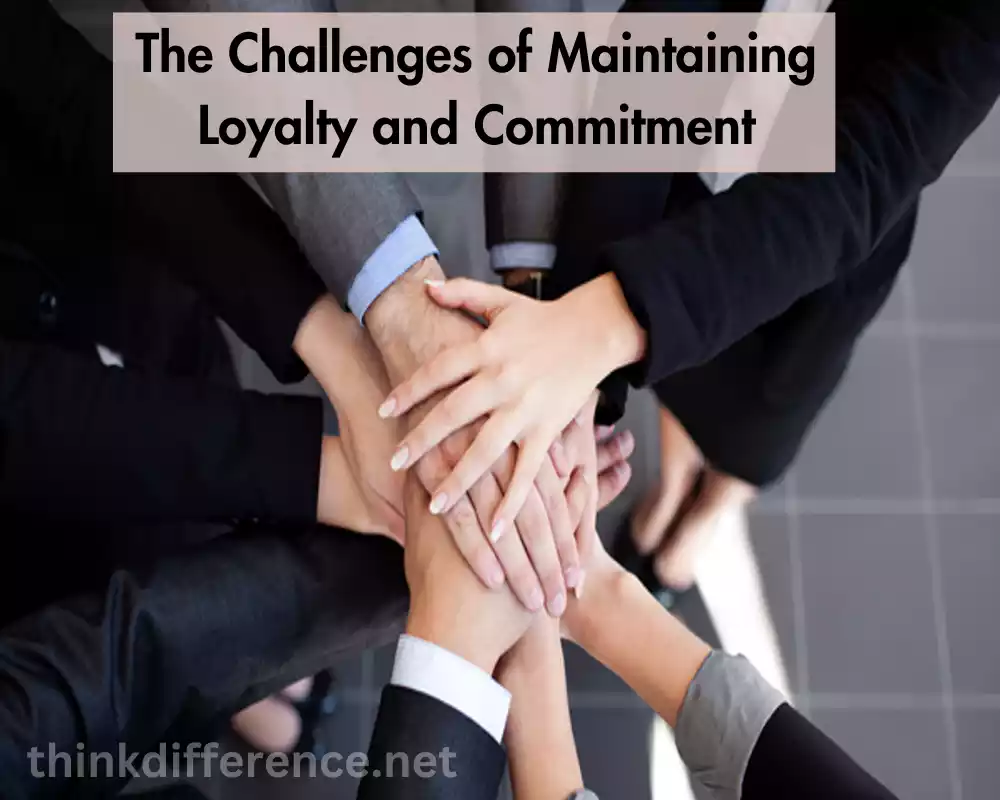
Some of these challenges include:
- Changing Circumstances: Life circumstances change over time, altering values, goals, and priorities in unexpected ways. Such shifts may alter people’s loyalty towards individuals or groups they were once loyal and committed to. Adapting to these changing environments while remaining loyal can prove challenging.
- Conflicted Values and Interests: When individuals or organizations hold competing values and interests, it can be challenging to maintain loyalty and commitment to one another. When personal goals or organizational values diverge significantly from each other, conflicts and disagreements may ensue as people struggle to stay loyal to both.
- Lack of Trust: Trust is a fundamental component of loyalty and commitment. If trust is compromised due to dishonesty, breaches of confidentiality, or other reasons, it can undermine loyalty and commitment. Rebuilding trust can be a challenging process and may require significant effort and time.
- Burnout and Fatigue: In high-pressure environments or demanding relationships, individuals may experience burnout or fatigue. This can impact their ability to maintain high levels of loyalty and commitment. Feelings of exhaustion, dissatisfaction can erode loyalty and commitment over time.
- External Influences: Loyalty and commitment may be affected by external forces like peer pressure, social norms or cultural practices. These influences may introduce conflicting perspectives or sway individuals away from their initial commitments.
- Communication and Misunderstandings: Effective communication is vital for maintaining loyalty and commitment. Poor communication, misinterpretations or misunderstandings may result in further frustration, straining relationships and ultimately breaking them down altogether.
- Unrealistic Expectations: Unrealistic expectations can place undue pressure on individuals or organizations, making it challenging to meet those expectations consistently. Loyalty and commitment based on unreal expectations may lead to disillusionment and disappointment.
- Lack of Recognition and Appreciation: Feeling undervalued or underappreciated can weaken loyalty and commitment. When efforts and contributions go unnoticed or unacknowledged, individuals may feel less motivated to maintain their loyalty and commitment.
- Personal Growth and Development: Individuals experience growth and change within themselves that could result in changes to their goals and aspirations. This process could bring new discoveries for life’s journey ahead. As individuals evolve, their loyalty and commitment may shift as well, posing challenges in maintaining the same level of dedication.
Addressing these challenges requires proactive effort, open communication, and a willingness to adapt. It may involve reevaluating and aligning values, rebuilding trust, providing support and recognition, and fostering an environment that encourages personal and professional growth.
By actively addressing these challenges, it becomes possible to navigate them and sustain loyalty and commitment in relationships and organizations.
Strategies for Building and Sustaining Loyalty and Commitment
Building and sustaining loyalty and commitment requires ongoing effort and intentional strategies.
Here are some effective strategies for cultivating and maintaining loyalty and commitment:
- Lead by Example: Leaders and influential individuals should exemplify loyalty and commitment themselves. Act with integrity, show dedication, and honor commitments. When others witness consistent behavior, it sets a positive example and encourages them to follow suit.
- Establish Clear Expectations: Clearly communicate expectations, goals, and values to all individuals involved. Ensure everyone understands their roles and responsibilities and the importance of loyalty and commitment in achieving collective success.
- Foster a Positive and Supportive Environment: Create an environment where individuals feel valued, respected, and supported. Encourage open communication, collaboration, and provide opportunities for growth and development. A positive and supportive environment enhances loyalty and commitment.
- Recognize and Reward: Acknowledge and appreciate the efforts and achievements of individuals who demonstrate loyalty and commitment. Implement recognition programs, provide incentives, or celebrate milestones to show gratitude and reinforce their dedication.
- Encourage Feedback and Act Upon It: Regularly seek feedback from individuals and listen to their concerns, suggestions, and ideas. Act upon the feedback received to address issues, improve processes, and demonstrate a commitment to continuous improvement.
- Foster a Sense of Purpose and Meaning: Connect individuals to the larger purpose and impact of their work. Help them understand how their contributions make a difference and align their personal values with the organization’s mission. A sense of purpose enhances loyalty and commitment.
- Promote Growth Opportunities: Provide opportunities for personal and professional growth, such as training, mentorship, or advancement within the organization. Investing in the growth of individuals shows a commitment to their development, fostering loyalty and commitment in return.
- Build Strong Relationships: Foster strong relationships based on trust, respect, and open communication. Encourage teamwork, collaboration, and create opportunities for social interaction and bonding. Strong relationships cultivate loyalty and commitment among team members.
- Address Challenges and Concerns: Promptly address challenges, conflicts, and concerns within the organization. Actively listen to individuals’ feedback, provide support, and work towards solutions. Handling challenges effectively demonstrates a commitment to a healthy and supportive work environment.
- Continuously Reinforce Values: Consistently communicate and reinforce the organization’s values and the importance of loyalty and commitment. Incorporate values into decision-making processes and use them as a guiding principle in all actions and interactions.
- Encourage Work-Life Balance: Work-life harmony can be promoted by encouraging flexibility, acknowledging the significance of well-being and providing people with tools to maintain an efficient work-life balance. This helps individuals feel supported and valued, fostering loyalty and commitment.
- Celebrate Successes: Celebrate individual and collective successes, milestones, and achievements. Publicly acknowledge and appreciate the efforts of individuals and teams, creating a sense of pride and motivation to continue demonstrating loyalty and commitment.
By implementing these strategies, organizations and individuals can build and sustain loyalty and commitment over time. It requires consistent effort, effective communication, and a supportive environment that recognizes and values the contributions of individuals.
Conclusion
Loyalty and Commitment are powerful virtues that significantly influence various aspects of life. They are vital for building trust, nurturing relationships, and achieving success in both personal and professional spheres. By cultivating these qualities and overcoming challenges, individuals and businesses can reap the rewards of steadfast loyalty and unwavering commitment.

